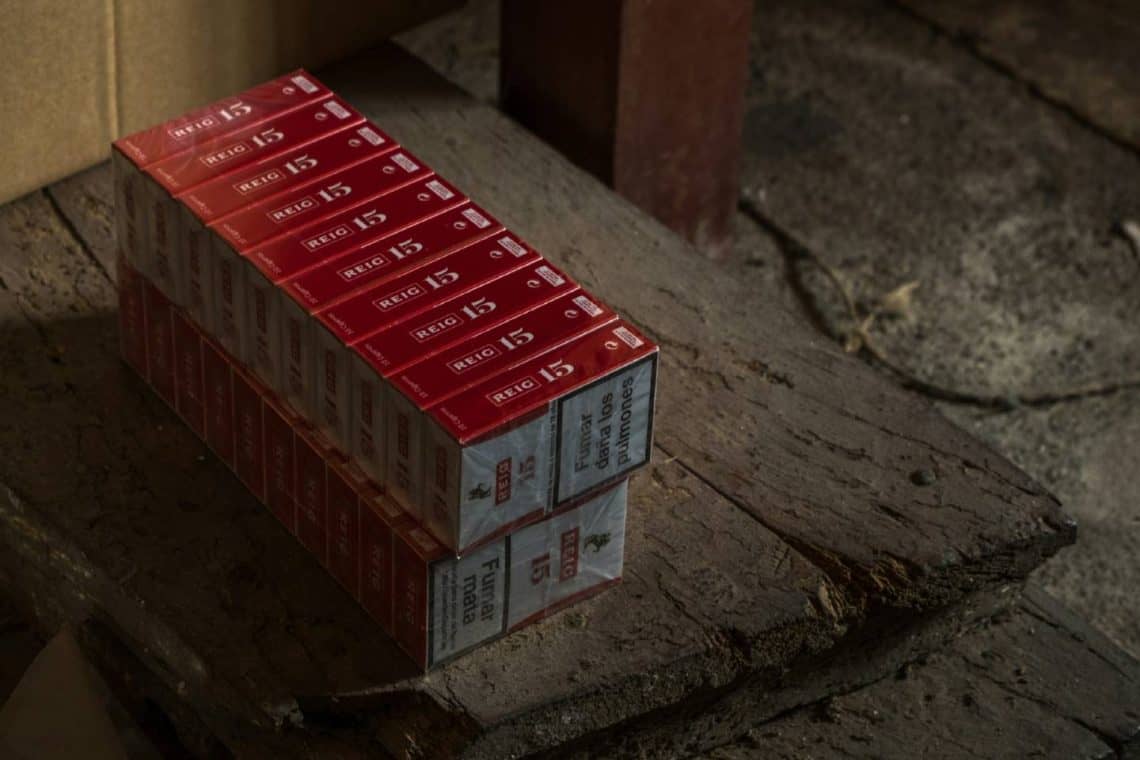South Africa’s tobacco industry is facing a severe crisis as illicit trade surges. The Fair-Trade Independent Tobacco Association (FITA), representing legitimate manufacturers, warns of massive financial losses and potential job cuts. With major players restructuring operations amid declining legal sales, the sector grapples with a thriving black market, falling smoker rates, and urgent calls for stricter enforcement.
The Rise of Illicit Tobacco
The illicit tobacco market now controls an estimated 75% of South Africa’s cigarette trade. Nearly 8 in 10 retailers reportedly sell illegal cigarettes, costing the South African Revenue Service (SARS) around R28 billion annually—roughly R100 million every working day.
Smuggling from neighboring countries has intensified, with frequent seizures at key border points. Illicit cigarettes, often sold for as little as R10 per pack, outcompete legal options, depriving the government of crucial revenue for public services. Between 2020 and 2022, researchers estimate the government lost about R15 billion annually in excise taxes due to the shadow market.
Beyond financial impacts, unregulated products pose health risks by bypassing safety standards and tobacco control measures.
Legal Industry Strains: Job Cuts and Restructuring
Legal tobacco producers are struggling under the weight of illicit competition. One major company has seen volumes drop by 40% since 2020, prompting restructuring that threatens hundreds of jobs. FITA warns that without intervention, the entire industry could collapse, affecting manufacturing, farming, and distribution sectors. Illicit operators’ tax evasion further contracts the formal market by nearly 10% annually.
This crisis reflects broader economic pressures, with legitimate businesses competing against organized crime syndicates. Reduced investment, factory closures, and unemployment ripple across regions dependent on tobacco.
Declining Smoker Rates Amid Black Market Growth
Paradoxically, overall smoking rates are declining, but challenges persist. Adult smoking prevalence stands at around 25.8%, with men at 41.2% and women at 11.5%. The black market undermines progress from past excise tax hikes and tobacco control laws, making enforcement of health policies more difficult.
Price-sensitive smokers often choose illicit cigarettes, sustaining addiction and health burdens. Nearly 7 million adults in South Africa still smoke, highlighting the black market’s role in keeping demand high.
Calls for Stronger Enforcement
Stakeholders urge robust action against illicit trade, advocating for tighter law enforcement, supply-chain controls, and international cooperation. SARS has increased operations, seizing millions in contraband, but experts recommend comprehensive strategies, including tax adjustments to discourage black-market shifts.
Lessons from Global Campaigns
International anti-smoking campaigns provide useful lessons. Programs targeting youth have effectively reduced smoking initiation, emphasizing health risks and prevention. Integrated approaches combining enforcement, education, and regulation could inform South Africa’s strategies to counter illicit trade and reduce tobacco use.
Trade Dynamics and Oversight
Global trade adds complexity to illicit tobacco flows. Imported products, sometimes processed abroad, can enter local markets illegally, exacerbating revenue losses. Vigilant monitoring is needed to ensure legitimate trade is not used to mask illegal activities.
Moving Forward
South Africa’s tobacco crisis demands immediate, multifaceted responses. Strong enforcement, strategic restructuring, and lessons from global anti-smoking initiatives are essential to curb illicit trade, protect jobs, and safeguard public health.
